Dealing with Pimples on Face can be frustrating, especially when breakouts appear right before important events. This skin problem affects millions in the USA, and it goes beyond just appearance. Pimples develop due to clogged pores, excess oil, and sometimes bacterial infection on skin that cause swelling and redness.
While teenagers often struggle with hormonal acne, many adults also face the challenge of unexpected flare-ups. Diet, stress, and lifestyle choices play a strong role in face pimples causes, making prevention just as important as treatment. The good news is that both natural remedies and medical options exist to restore clear, healthy skin.
What Are Pimples and Why Do They Appear on the Face?
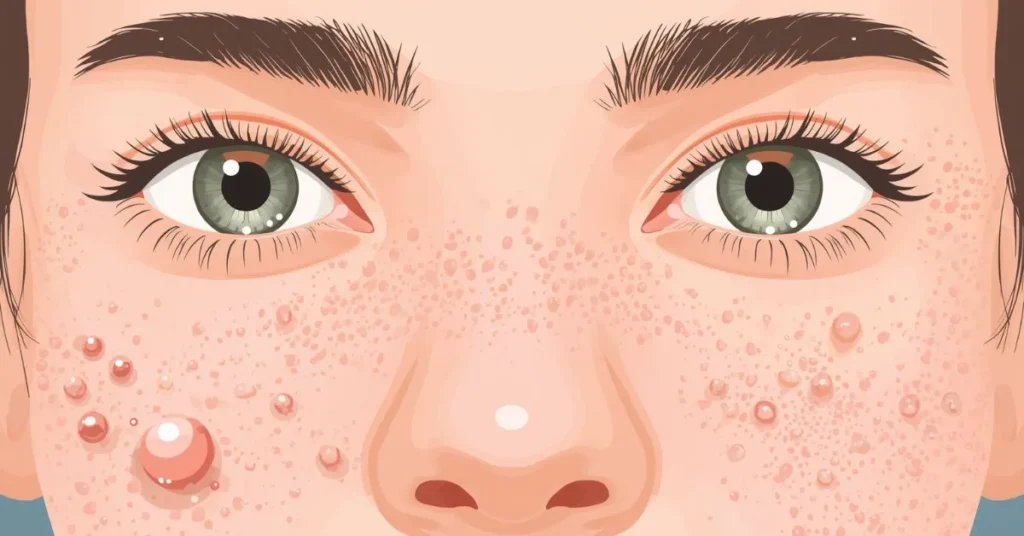
Pimples form when clogged pores trap oil, dirt, and dead skin. Once this happens, bacteria begin to grow and cause skin inflammation. The face is the most common place for pimples because it produces more oil compared to other body parts. People with oily skin problems often notice breakouts more frequently than those with dry or normal skin.
When bacteria invade the pores, the immune system reacts. This reaction leads to swelling, redness, and pus-filled spots. Some individuals may only see small bumps, while others suffer from painful cysts. The key is knowing that pimples are not random; they result from an ongoing process that can be managed with the right approach.
Common Causes of Pimples on the Face (Pimples on Face)
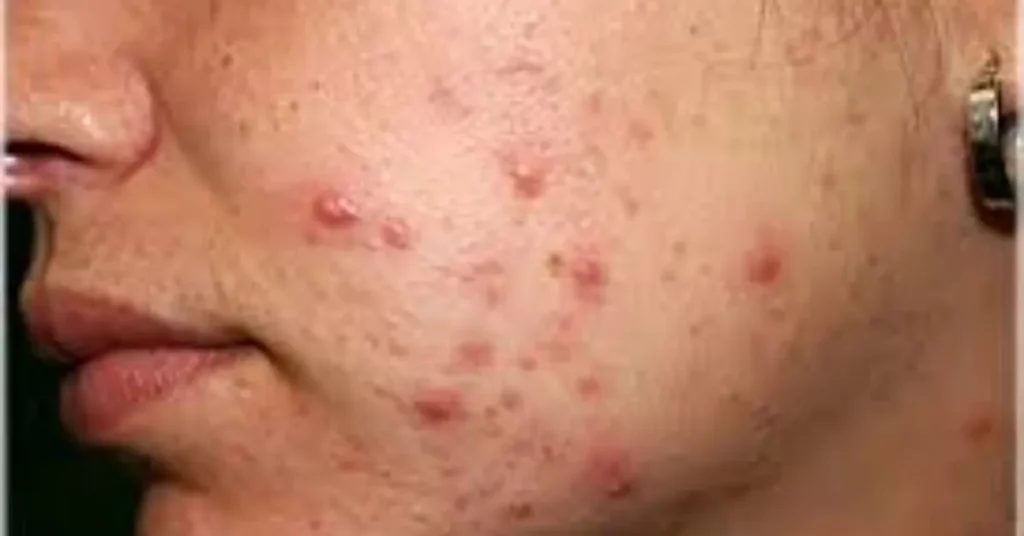
There are many face pimples causes that can differ from person to person. In teenagers, hormonal acne is the biggest factor. Hormones increase oil production, making the skin greasy and more likely to break out. In women, hormonal changes during periods, pregnancy, or menopause can trigger pimples too.
Lifestyle also plays a major role. Stress, poor sleep, and unhealthy diets all contribute. Studies in the USA show that people who eat more fast food, dairy, and processed sugar report higher rates of acne breakouts. Environmental issues such as pollution and sweat from workouts can also worsen the problem, making pimples hard to avoid.
Types of Pimples You May Notice on Your Skin (Pimples on Face)
Not all pimples are the same, and identifying them helps find the best treatment for acne. The mildest forms are blackheads and whiteheads, which develop when pores are clogged by oil and debris. Blackheads stay open, turning dark due to oxidation, while whiteheads remain closed with a white surface.
More severe pimples include papules and pustules. Papules are small, red bumps without pus, while pustules contain yellow or white pus at the tip. Nodules and cysts are the most painful and require medical care. They form deep in the skin and often leave scars if untreated. Understanding these differences allows you to choose between natural skin remedies and professional care.
Sudden Pimples on Face – Possible Reasons You Should Know
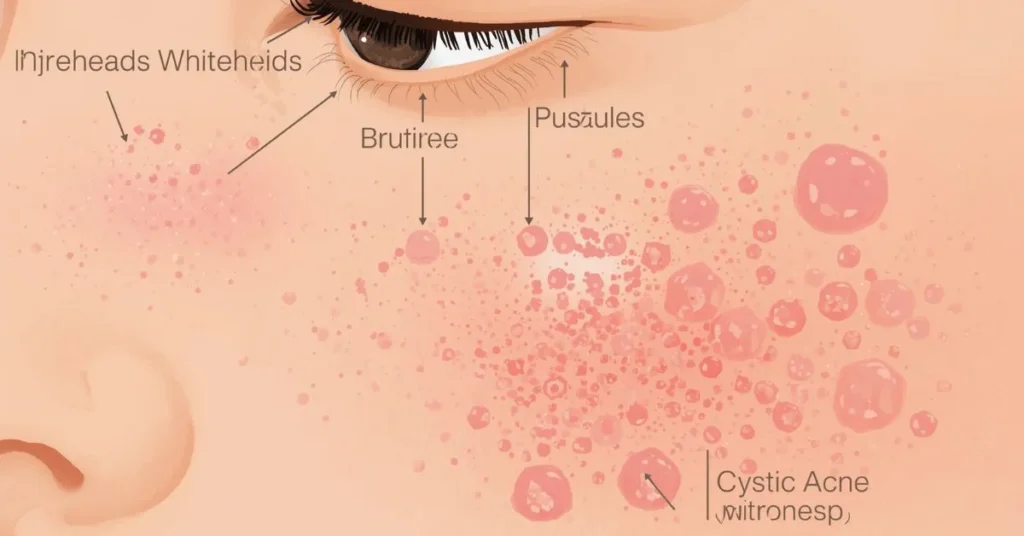
Many people ask, “why do I suddenly get pimples on my face?” The answer is often linked to sudden lifestyle changes. High stress levels, poor diets, or new cosmetic products can irritate the skin. Even a simple change like using a new moisturizer can trigger breakouts.
Weather is another factor in the USA. Humid summers can increase sweating and oil production, while dry winters may cause the skin to overproduce oil as a defense. Both extremes can lead to new pimples. The sudden appearance of spots should be seen as your skin’s way of telling you something is out of balance.
Pimples in Adults – Causes and Skin Triggers
Although many think pimples are only for teens, adult acne causes are now common across the USA. Hormonal shifts are one reason, but lifestyle is another. Long working hours, stress, and lack of rest affect hormone balance and weaken the skin’s defense.
Diet is also powerful. Research shows strong links between diet and pimples. High consumption of dairy, chocolate, and processed food can lead to more breakouts. Smoking and alcohol make the issue worse by slowing skin healing. This is why adults who never had acne as teenagers often ask, “what triggers pimples in adults?”
How to Prevent Pimples on Face Naturally at Home
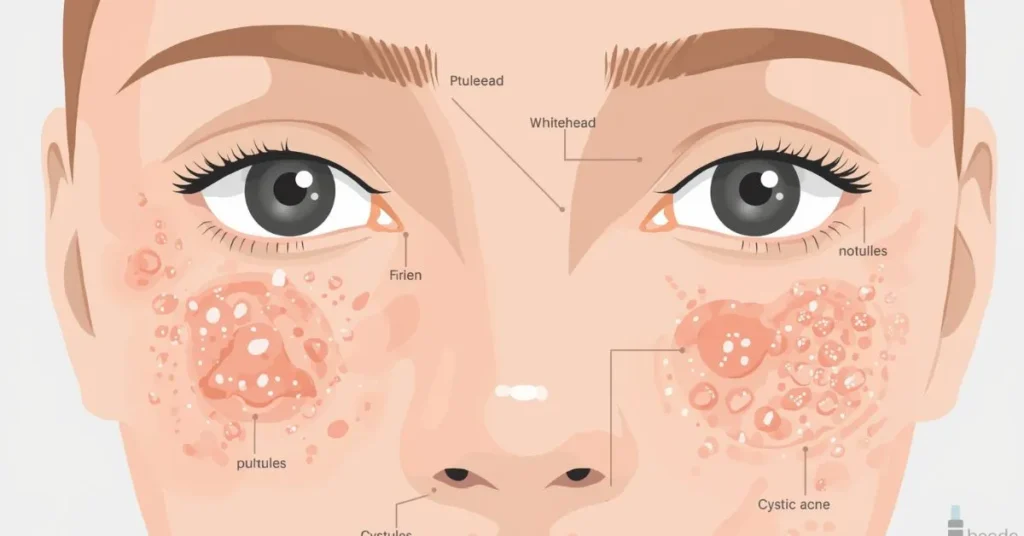
Prevention begins with simple steps. A gentle skin care routine for pimples helps reduce oil and dirt buildup. Washing your face twice daily with a mild cleanser is essential. Regularly changing pillowcases and avoiding touching the face can also keep bacteria away.
Healthy living matters too. Drinking enough water, exercising, and lowering stress have proven effects on skin health. Many dermatologists stress the importance of rest since sleep regulates hormones. Combined, these habits work as lifestyle changes to prevent acne and can significantly reduce the risk of breakouts.
Best Natural Remedies to Remove Pimples Permanently
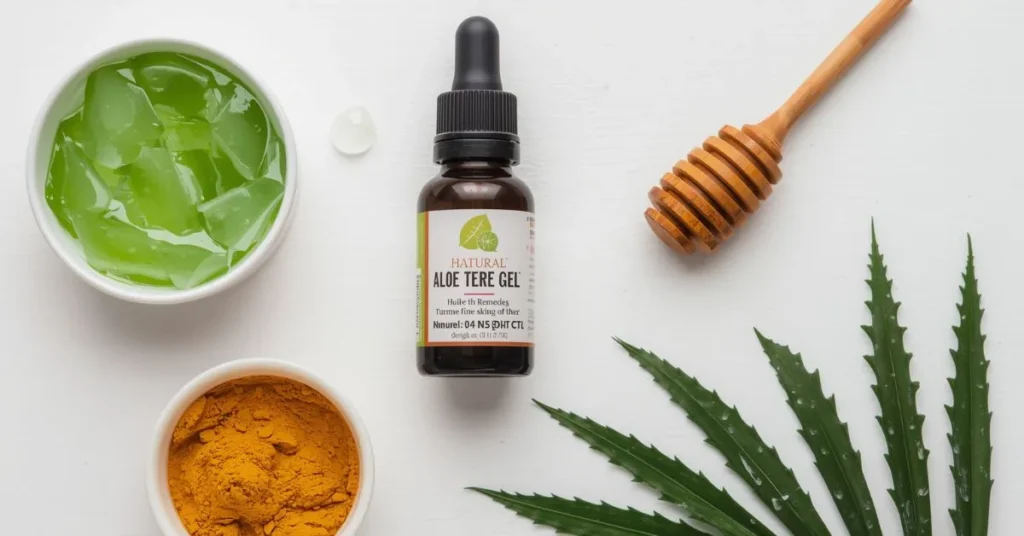
Natural remedies are safe and often effective. Aloe vera is known for calming skin inflammation and healing scars. Tea tree oil has antibacterial properties, making it one of the most effective natural remedies for pimples on face. Honey also works as a natural antibiotic, reducing swelling and redness.
Green tea extracts are packed with antioxidants and help reduce oil. Turmeric masks fight bacteria and even out skin tone. People searching for natural ways to cure pimples permanently often rely on these remedies before trying chemical treatments. Consistency is key when using home remedies for pimples.
Effective Home Treatments to Stop Pimples from Coming Back
The secret to long-term results is consistency. Once pimples heal, it is important to continue a proper routine. Using natural masks once a week, hydrating daily, and applying sunscreen can protect skin from future damage. These practices form the best home treatment for acne scars and pimples.
Food choices also matter. Limiting foods that cause pimples on face such as fried snacks, dairy, and sugar reduces breakouts. At the same time, vegetables, fruits, and omega-3 fatty acids improve skin. With discipline, you can learn how to stop pimples from coming again through simple daily habits.
(Pimples on Face)
Medical Treatments and When to See a Dermatologist
Sometimes, home remedies are not enough. Over-the-counter creams with salicylic acid or benzoyl peroxide work well for mild acne. For severe cases, dermatologist recommended treatments for pimples include antibiotics, hormonal therapy, and retinoids. These treatments target deep bacterial infection on skin and restore balance.
Advanced solutions like chemical peels and laser therapy are also available in the USA. These not only clear pimples but also treat scars. You should visit a dermatologist if pimples are painful, leave scars, or do not improve after using natural skin remedies for several months. (Pimples on Face)
Final Tips for Clear and Healthy Skin (Pimples on Face)
Clear skin is not achieved overnight. It requires patience, knowledge, and persistence. Following clear skin tips like cleansing, eating well, and managing stress will help. Using both natural skin remedies and professional care when necessary ensures a balanced approach.
Remember, skin health reflects your overall lifestyle. If you maintain discipline and avoid foods that cause pimples on face, your journey on how to get clear skin without pimples will be much smoother. Consistency and care are the true secrets to lasting results.
Table: Natural vs Medical Treatments for Pimples
| Approach | Example | Benefits | Drawbacks |
|---|---|---|---|
| Natural Remedies | Aloe vera, honey, turmeric | Safe, affordable, improves skin health | Slower results, requires patience |
| Home Treatments | Cleansing, hydration, sunscreen | Prevents new pimples, reduces scars | Needs daily discipline |
| Medical Treatments | Antibiotics, retinoids, laser | Fast and effective, treats severe acne | Costly, possible side effects |
FAQs
How do I clear pimples on my face?
You can clear pimples by following a daily skin care routine for pimples, keeping your face clean, and avoiding clogged pores. Natural remedies like aloe vera and tea tree oil, along with dermatologist recommended treatments for pimples, can help you achieve clear skin tips without harsh chemicals.
What causes face pimples?
The main face pimples causes include excess oil, hormonal changes, poor diet, and bacterial infection on skin. Stress and oily skin problems also play a role. Understanding what triggers pimples in adults helps manage them through prevention, better diets, and natural skin remedies that keep breakouts under control.
How can I stop acne on my face?
To stop acne breakouts, wash your face twice daily, avoid touching it, and reduce foods that cause pimples on face. Consistent care, proper sleep, and hydration are important. Combining home remedies for pimples with lifestyle changes to prevent acne is the most effective long-term solution.
How to treat pimples in 3 days?
While it’s tough to remove pimples completely in 3 days, applying ice for swelling, using tea tree oil, or spot-treating with benzoyl peroxide may speed healing. These effective natural remedies for pimples on face work best when combined with patience and consistent care.
Which cream is best for pimples?
The best treatment for acne creams often contain benzoyl peroxide or salicylic acid. For sensitive skin, natural aloe-based creams help reduce skin inflammation. Always choose products suitable for your skin type, and if pimples worsen, switch to dermatologist recommended treatments for pimples for faster results.
How do pimples go away naturally?
Pimples may go away naturally when the body balances hormones and skin heals itself. Using natural skin remedies like honey or turmeric helps speed recovery. Many people also follow clear skin tips such as proper diet, hydration, and rest, which support natural ways to cure pimples permanently.
What is the difference between pimples and acne?
A pimple is a single spot, while acne is a broader condition that includes blackheads and whiteheads, papules, cysts, and nodules. Pimples are symptoms, and acne describes the overall skin disorder. Understanding this difference helps in choosing the best home treatment for acne scars and pimples.
What kills acne bacteria?
The bacteria that cause acne can be reduced with benzoyl peroxide, antibiotics, and natural skin remedies like tea tree oil. These treatments attack the bacterial infection on skin that leads to acne breakouts. Keeping the skin clean also prevents bacteria from spreading and worsening pimples.
Can toothpaste help with pimples?
Toothpaste is not a best treatment for acne and can irritate the skin due to strong chemicals. Dermatologists warn against this method. Instead, try home remedies for pimples such as aloe vera or tea tree oil, which are safer and more effective for long-term results.
Which serum is best for acne?
The best serums for pimples often contain niacinamide, vitamin C, or salicylic acid. These ingredients reduce skin inflammation, unclog pores, and promote healing. Many people combine these serums with natural skin remedies for balanced care and to prevent acne breakouts from returning.
Are pimples good or bad for you?
Pimples are not good for the skin. They signal clogged pores, oily skin problems, or hormonal imbalance. Untreated pimples can lead to scars and infections. Following lifestyle changes to prevent acne and using clear skin tips helps protect long-term skin health.
Can diet affect pimples?
Yes, diet and pimples are strongly connected. High sugar, dairy, and greasy foods are common foods that cause pimples on face. On the other hand, diets rich in vegetables, fruits, and omega-3s reduce acne breakouts. Nutrition is a core part of learning how to get clear skin without pimples.





Szia, meg akartam tudni az árát.